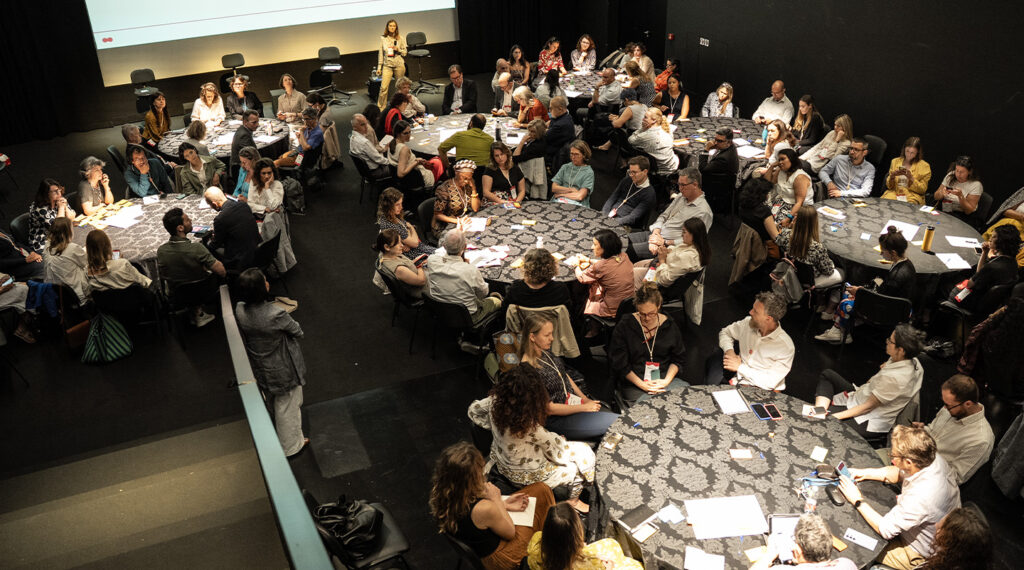From dictatorship to democracy: Why equity-based governance is the future

A personal journey
I was born under a dictatorship in Romania. My childhood was shaped by two hours of state-controlled television a day, newspapers filled with propaganda, and whispered warnings from my parents not to speak openly about politics. Voting meant choosing between identical faces on a ballot – each representing the same party. Dissent was dangerous. Civil liberties were eroded. Minority voices, like those of the Roma community, were ignored or actively suppressed.
Fast forward to today: I am now a Swiss citizen. I vote on national referenda, but also on local issues – bike lanes, school renovations, even noise regulations. I feel heard. I feel seen. And I believe this is the right system for people.
This journey – from dictatorship to democracy – has shaped how I think about governance. Not just in politics, but in organisations too.
Organisational governance models: a quick tour
Authoritarian governance centralises power. Decisions are made behind closed doors and participation is discouraged. Accountability is minimal and equity is absent. It’s efficient for those in charge, but fragile. It suppresses dissent, stifles innovation, and eventually collapses under its own weight.
Democratic governance distributes power and decisions to follow transparent rules. Participation is encouraged and accountability is institutionalised. Equity is formalised – but not always realised. Democracy is resilient as it allows for correction and growth. But it can still fall short – especially when inequities go unaddressed.
Equity-based governance goes further. Power is shared intentionally with those most affected by the decisions. Decisions centre lived experience, and participation is proactive and inclusive. Accountability is embedded in relationships – between funders and grantees, leaders and communities, boards and staff. It is not imposed from above but co-created through trust, dialogue, and shared power.
These three models are not exhaustive; rather, they represent points along a broader spectrum of governance approaches, with the reality of organisations showing many nuanced variations in between.
Why equity-based governance matters in organisations
Imagine an organisation as an onion (yes, really). At the outer layers, you have resources – money, staff, and systems. Peel back a few layers and you find strategy, mission, and purpose. But at the core? That’s where identity, values, leadership, and governance live.

Model developed by Rick James/INTRAC
If the core is rotten – say, an autocratic leadership style or a governance structure that concentrates power in a few hands – the whole organisation risks disintegration. We’ve seen it happen. All too often. Organisations with brilliant strategies and generous funding fall apart because their governance is brittle, inequitable, or disconnected from their values and stakeholders.
Equity-based governance, on the other hand, strengthens the core. It ensures that leadership reflects the diversity of the communities served. It creates space for experience to shape decisions. It builds trust, resilience, and adaptability.
One organisation we work with recently added youth leaders to its board. The result was immediate. The strategy shifted to include mental health and digital safety – issues previously overlooked. That’s what happens when governance reflects reality.
During the session on `Equity in Action: Transforming Governance for Crises` hosted by the Organisational Development (OD) Community of Practice at Philea Forum in Lisbon earlier this year, we asked participants to reflect on governance challenges in grantee organisations. The responses were revealing:
- Leadership transitions are often abrupt. Founder syndrome persists. Boards lack ownership and succession planning. Leadership is strong on technical skills but weak on management and self-awareness.
- Equity and representation are lacking. Governance spaces exclude youth, gender-diverse, and local voices. Intersectionality is ignored. Power dynamics in strategy and decision-making remain inequitable.
- Grantees are overwhelmed. For them, due diligence often feels transactional rather than relational leading to missed opportunities to build trust. As a result, governance is sidelined by operational pressures.
- When it comes to OD practices which support governance, participants noted that donor practices are inconsistent, with unclear expectations and one size fits all models.
These issues demand systemic solutions.
The role of donors: investing in the ‘soul’ of organisations
Participants also offered powerful recommendations for meaningful OD support, helping grantees develop equity-centred governance:
- Support for governance should begin with co-creating strategies that reflect each community’s unique context. Equity and intersectionality must be woven into funding decisions, leadership development, and frameworks that move beyond symbolic diversity efforts.
- Donor practices should feel like partnerships, not gatekeeping. When funders are transparent about their processes and allow grantees to lead their own development, trust deepens and impact grows.
- Governance flourishes when supported through peer learning, external facilitation, and collaborative networks. Long-term, small-scale experiments can unlock new models of change.
- Governance should be integrated into every phase of funding, from initial scoping to final reporting. Strategic focus areas can include board development, rotating leadership, clarifying roles and risks, as well as addressing tensions across donors, communities, and legal structures.
Final thoughts
Especially at this pivotal moment in our human history we need governance systems that are inclusive, participatory, and responsive to context. We need leadership that listens. Structures that redistribute power. Cultures that reflect the values they claim to uphold.
Governance isn’t a checkbox. It’s the foundation. And in a world that’s complex, organisations need strong foundations. Equity-based governance is a necessity. Whether in countries or organisations, it’s the model that centres people, especially those most impacted by decisions. It’s the model that listens, learns, and evolves.
And for someone who’s lived both ends of the governance spectrum – from dictatorship to democracy – I can vouch for equity-centred governance.
The OD Community of Practice is there to help any donor to unpack these concepts and accompany them in the journey of providing OD support to their partners.
Adriana Craciun is the Senior Adviser for Organisational Strengthening and Effectiveness at Oak Foundation and a Steering Group member of Philea’s OD Community of Practice. The views expressed in this blog are her own.
Authors

